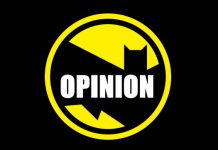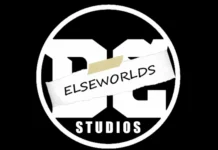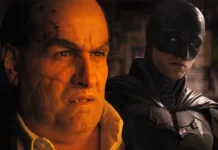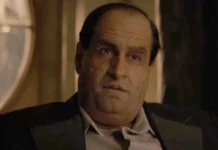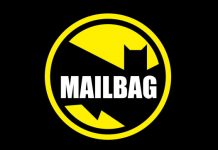 Well, that was a remarkable and tumultuous week for the newly merged Warner Bros. Discovery. It’s not often that the word “unprecedented” gets used about some corporate decision without it being hyperbole and it wasn’t hyperbole this week. A corporation announced a major shift in strategy in the streaming wars. Someone got paid to try to make “genredom” a word. It was divisive, weird, and anything but dull.
Well, that was a remarkable and tumultuous week for the newly merged Warner Bros. Discovery. It’s not often that the word “unprecedented” gets used about some corporate decision without it being hyperbole and it wasn’t hyperbole this week. A corporation announced a major shift in strategy in the streaming wars. Someone got paid to try to make “genredom” a word. It was divisive, weird, and anything but dull.
But, before we get into all of that, let’s try to see how we got here. Back in 2016, AT&T started talks to acquire WarnerMedia. The dreams were of a streaming platform that would compete with Disney and all the data the technology company could monetize. Things did not go as smoothly as planned with the Trump Administration dragging the merger through an antitrust lawsuit and the launch of HBO Max being launched at least a year later than planned in May 2020. The launch was rough too with a buggy app, Roku and FireTV not on board with carrying the app, and the content pipeline not exactly flowing with a pandemic further complicating correcting those situations. Meanwhile, rivals Disney+ and Netflix had subscription rates soaring during the spring lockdowns. Netflix was flying high in the stock market while AT&T wasn’t.
To WarnerMedia’s credit, things got a lot better with the streaming service. The app was improved. Agreements were ironed out with Roku and FireTV. The content pipeline started flowing again and HBO/HBO Max absolutely proved that they had one of the best development teams in the business. In December 2020, the controversial decision was made to implement “Project Popcorn” by Jason Kilar, and all Warner Bros. theatrical movies until 2022 were thereby “day and date” on HBO Max. Arguably at great sacrifice to the theatrical receipts of the films once a recovery from the depths of the pandemic started to materialize.
And, in many ways, those plans worked. Subscriptions to HBO Max grew by leaps and bounds. Given its higher price point, HBO MAX appears to be outperforming Disney+ in revenue now and sits firmly with Netflix and Disney+ as a service that looks to be a long-term player. The hit shows were increasing. The Emmy nominations and wins were increasing. You only needed HBO Max to watch the majority of Best Picture nominees this last awards season. HBO Max placed in a recent survey of consumer satisfaction as the #1 streaming service with 94% consumer satisfaction. I doubt Obama ever got a 94% satisfaction rating among Democrats. Theatrical and the DC brand may have been struggling to an extent, but if the goal was to build a top-tier streaming service, that goal was being accomplished.
Problem is, Wall Street started asking tough questions of the media companies that were building around streaming platforms first and foremost. Questions like “How realistic are these growth projections?” and “So, when does your platform intend to turn a profit?” As none of the companies had great answers to these questions that would justify their profligate spending habits, stock prices tumbled as the bubble burst. As AT&T is not primarily a media company and their plan to monetize all the consumer data they were collecting turned out to be a bust, spinning off the media company portion of the business turned out to be increasingly attractive.
That’s where Discovery and David Zaslav enter the picture. Under David Zaslav, Discovery has developed a brand in reality television and a reputation as being old-school frugal. Given HBO Max’s successes in scripted television and all major streamers needing to rein in their spending, a merger of AT&T’s entertainment assets with Discovery made all sorts of sense. And, was also a way for AT&T to unload some debt. But, that scripted/unscripted balance and a fiscal disciplinarian at the top of the proposed company made a lot of sense, debt or no debt. And, I think a lot of people drew solace that at least this time, the Warner companies were going to an entertainment company. Restructuring, belt-tightening, and probably a combined streaming service were anticipated. This last week was pinpointed and the quarterly earnings call was anticipated when we would get major announcements.
RELATED | The BOF Social Hour 78: BATGIRL Movie Canceled!
Rumors were flying. But, nobody saw the first bombshell when the New York Post reported that BATGIRL had been canceled although deep into post-production. Shortly thereafter, it was also reported that SCOOB! 2: A HOLIDAY HAUNT had been canceled, although writer Paul Dini had said it was 95% complete. Apparently, the goal was to achieve some tax write-down. Although as details emerged, it appeared that taking that write down would mean that the films could never be commercially released. Deadline estimated that approximately $15 to $20 million would be saved by that cancellation on BATGIRL. I imagine that significantly less was saved on the SCOOB! cancellation, maybe as little as $2 million if Paul Dini’s statement is correct.
To start with, Warner Bros. Discovery handled all of this horribly whatever the merits of the decision as the news was leaked before the creatives were notified and the leak itself was fairly defamatory towards the creative team in calling BATGIRL “irredeemable”. I can only presume someone leaked the news to the New York Post as an effort to paint David Zaslav as “a no F’s given, no sacred cows, disruptor about to teach Hollywood some financial discipline because he understood the ‘sunk cost fallacy’” to impress Wall Street. And, honestly, the merits were not really clearly explained.
The “sunk cost fallacy” is simply that it doesn’t matter how much you already spent, you just need to evaluate your projected costs and returns moving forward. CNN+ being canceled quickly is a perfect illustration of that principle, operating costs stretched out indefinitely with no clear path to a profit, and the $300 million already spent was irrelevant. I’m in 100% agreement with David Zaslav that streamers should not be spending $90 million on a BATGIRL feature, $40 million on a SCOOB! sequel, or for that matter, $200 million on THE GRAY MAN at Netflix. But, the “sunk cost fallacy” doesn’t say cancel them now that you’ve spent all that money, it says evaluate them going forward. Could the SCOOB! sequel have been worth more than $2 million going forward? Could BATGIRL have been worth more than $20 million?
BATGIRL may have been bad, although The Hollywood Reporter reported test screening scores in the passable range of the 60s, but even bad movies can have commercial prospects. A known IP, Michael Keaton as Batman, J.K. Simmons, and Brendan Fraser on a comeback are strong commercial elements. Leslie Grace is a fresh, young, attractive, talented, enthusiastic, not wanted by the police, rising star who would probably do very well on the talk show circuit. Sure, it might not fit what you were doing going forward, but there are ways to just convert it to a standalone film with no connection to anything else using the multiverse concept. A concept that just appeared in a film that grossed more than $950 million worldwide. A lame duck like THE NEW MUTANTS had over $51 million in gross revenue just counting box office gross and domestic physical media, and the commercial aspects of BATGIRL certainly seems stronger than that. Even the most notorious bombs were probably good decisions to release after you’re already spent 90% of the budget. The time to cancel a film is before it goes into production except in the direst circumstances. It’s not a clear-cut financial case, even throwing in marketing costs, and the questions came up whether this was merely trying to show up the old regime. And apparently taking the write-down would prevent any ability to monetize the films in the future. Maybe Zaslav is right, but a convincing financial case has not been made yet, just some assertions that appear dubious.
It goes almost without saying that the decision and how it was handled did not go down well with the creative community.
Then things got downright weird. A bunch of movies disappeared off of HBO MAX next without any explanation. These were movies that HBO Max had exclusive rights to forever as far as we can tell. For the second time in one week, the word “unprecedented” could be used. Sure, none of the movies were huge successes but a few had decent reviews, and LOCKED DOWN was one of the very first movies made dealing with the Covid pandemic so it had historic and cultural value. Best case scenario, this is just some hardball financial tactics, new deals will be negotiated or the films returned to the creators, and some lawyers will make some money in the interim. Truly scary scenario, Warner Bros. Discovery will take some sort of tax write down and the films will disappear down some Orwellian memory hole only being saved for posterity by pirate sites. I’d argue that even bad movies are a reflection of the times and people that made them and that the films still have value as cultural artifacts. This is some barbarians at the gates coming to burn everything down that can’t be monetized scariness and chills the blood of anyone that has any appreciation of film preservation.
Between those two events and the investor call, let’s just say that rumors were flying. Everything was on the table from HBO just being a tab on the Discovery+ app to scripted shutting down completely. Maybe that was the plan because the investor call itself was pretty normal. Not a home run, perhaps, but at least it laid out the big picture. I’ll just focus on streaming and DC for the most part since that’s where most changes are focused.
- A combined streaming service will be released Summer 2023. Discovery will largely handle the unscripted side with HBO covering the scripted side. There will be no separate HBO Max team.
- The service will focus on curated high-quality content, not the most content.
- There will be ad-free, limited ads, and ad tiers for subscribers.
- The streaming service aims to add roughly 40 million more subscribers, getting the total up to around 130 million, by 2025 at which point it projects a profit.
- Warner Bros. Discovery values theatrical, specifically citing THE BATMAN and ELVIS as successes. Day and date releases are done and a case-by-case decision will be made on when movies come to the streaming service.
- DC is expected to be a big part of theatrical. Expect big DC movies going forward with big spectacle. Superman, Batman, and Wonder Woman will be a big part of it. They’re committed to THE FLASH.
- Alan Horn is organizing the DC side going forward. There’s a 10-year plan, but no details were given. DC Films is apparently going to be a thing, but again, no details were given.
RELATED | The BOF Social Hour 79: WBD Investor’s Call Breakdown/Discussion & the Future of DC on Film
As a whole, this is what one should have expected from an investor call. This isn’t FanDome so a lot of announcements were not going to happen for a crowd whose primary concern is making money. On a big picture level, much of what Zaslav and company said made plenty of sense. There’s a road to the profitability of the streaming service with goals that appear achievable. As an investor, I commend Zaslav for confronting reality head-on without promises of unlimited growth, etc.
But, there certainly are nits to be picked at. Combining subscriber numbers of multiple services into one number isn’t particularly helpful in evaluating the overall company health and suggests that they were hiding something. Trying to present Discovery as something of an equal partner wasn’t very convincing. Things like “90 Day Fiancée Universe” and “genredom”, even if intended as a bit of levity, were largely mocked and detracted from the gravitas and credibility of the presentation.
And then there is what wasn’t said. What does combining HBO and HBO Max really mean? Are all the Max shows gone? Some? What’s the criteria? Did they forthrightly address the controversies of this week? Lots and lots of questions remain.
So, a summing up of the week:
The Good
- For investors, a pathway to profitability for the streaming service.
- A recommitment to theatrical and a realistic vision for spending priorities.
- An organization chart that makes sense and is lean.
- Alan Horn getting DC organized. The commitment to reset, pivot, and protect DC.
- HBO running scripted and Discovery running unscripted plays to the strengths of both.
- Having a 10-year plan is good. Hopefully, it works out, unlike the previous plans.
- For the first time in a while, there looks to be a vision and stability at the top.
- For consumers, doing away with a wall between HBO and HBO Max is probably a good thing. There are large swathes of rural America that can’t really get high-speed internet, but can get satellite. I’m sure a bunch of them would be interested in watching PEACEMAKER and HACKS too.
The Bad
- A bunch of talented people are getting laid off. It’s expected with mergers, but there’s no point in dismissing the human cost. Hopefully, all these people find new jobs soon. Peacock could probably use some of the talent released.
- The lack of details. Plans are great, the Soviets had a bunch of 6-year plans, but saying you have a plan and giving an outline of what those plans are matter. As an investor, I really needed more detail to decide if they were throwing out the baby with the bathwater in some cases.
- As a consumer, did my streaming service just get worse? As an investor, is the perception that the streaming service is going to be worse going to affect subscriptions?
- Is the DC vision too restrictive? Two of DC’s biggest triumphs of recent years are JOKER and WATCHMEN and SANDMAN has the rumblings of a big hit (for competitor Netflix). Is there room for those going forward? THE PENGUIN show? The DUNE show? Is there a vision for the parts of DC that aren’t strictly superheroes? Is there room for DC on television?
- Did Zaslav make a couple of bad financial decisions due simply to disagreement with the prior regime’s strategy? One can agree that $90 million streaming movies are foolish and think the BATGIRL cancellation was also ill-conceived with little benefit in the grand scheme of company debt.
The Ugly
What precisely is going on with those disappearing movies from HBO Max? If the truly apocalyptic scenarios are off the table, wouldn’t simply clarifying that they are off the table be a reasonable thing to do? It creates the perception that your CEO doesn’t particularly care about movies except as numbers on a spreadsheet. Say what you will about Elon Musk, at least he appears to care about making electric vehicles and rockets.
Warner Bros. Discovery did tremendous damage to their talent relations this week. Adil El Arbi and Bilall Fallah are young up-and-coming directors coming off a big hit in BAD BOYS FOR LIFE and I doubt they’ll ever consider working for Warner Bros. again. They probably will have a high-profile platform to embarrass Warner Bros. too. Leslie Grace is a rising star. Paul Dini is probably considering those Marvel animation offers more seriously. After decades of being considered one of the most filmmaker-friendly studios, Warner Bros. is now widely perceived as one of the worst.
Final Thoughts
As an investor, I think there was good news presented even if it didn’t help the stock price. There’s a big-picture vision of how they want to achieve profitability of their streaming service and shore up their DC brand. Now, the devil is in the details, so much more needs to be laid out, but an investor call isn’t necessarily the place for that.
But, there also was one big item that simply looks like an unforced error to me. High-quality shows and movies that people want to watch don’t appear spontaneously without talent involved and Warner Bros. Discovery decided to make it much harder for themselves to acquire that talent. It is one thing to be holding J.J. Abrams’s feet to the fire over the output of a big production deal. That’s business as usual. This week was not business as usual.
Sure, maybe Zaslav is right and they saved several tens of millions of dollars in the short term. That’s a drop in the bucket in the company’s overall debt load. Meanwhile, moving forward as the “sunk cost fallacy” says we should, they’ve made it much more difficult to hire talent. The mercenaries that don’t care cost more money. The people without options likely cap your potential. And everyone is going to make sure that they protect themselves from a corporation that’s proven that it can’t be trusted in its first opportunity. Sure, there might be a young up-and-comer with dreams of making a “Green Lantern” movie that doesn’t care who they work for as long as their dream project gets made. That could still happen. I could also win the lottery next week. Neither scenario seems likely.
Talent relations and acquisition is not something that’s easily quantified on a spreadsheet, but anyone that’s worked in any business will tell you that it’s something real and important. Warner Bros. Discovery is going to have to rebuild those relationships now. And, frankly, that’s going to cost them money while many of their competitors enjoy a competitive advantage. A common cause of studio struggles throughout history is simply having lesser talent than other studios. The right talent is the lynchpin of any plan in a field that requires artistic endeavor. Frankly, I think the damage that was done to talent relations and the cost to fix it is going to outweigh the short-term savings considerably. It makes me question the overall understanding of the scripted entertainment business by the people in charge. Having doubts about the guys at the top this early isn’t what the investors call should have left as a possibility. Maybe there is a reason that some things are “unprecedented” and should have remained that way.
Warner Bros. is coming up on its 100th anniversary. But, it’s fair to say that the old company is no more. What we’ve heard so far indicates that there is a vision for where they want to go. The roadmap for getting there is still unclear at the moment. And it’s going to be incumbent on leadership to demonstrate that they can be trusted, in more ways than one. – Robert Reineke



